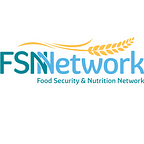Promoting Learning and Adaptative Management through Pause and Reflect
By: Florence Randari, MEL Advisor (Program Learning), Mercy Corps
Many emergency and development programs, and even organizations, transition from one program phase to another without systematically documenting, analyzing, internalizing, and integrating the learning acquired. Scarce resources and internal and external pressures to perform and deliver are critical barriers to pausing and reflecting on the knowledge acquired during implementation. This limits the ability of programs to use real-time data to improve interventions during the life of the program and to design more effective and sustainable programs in the future.
As such, the Implementer-Led Design, Evidence, Analysis, and Learning (IDEAL) Activity is launching a Pause and Reflect (P&R) deep dive series to explore the way in which different food security program implementers overcome these barriers and successfully implement P&R within their own activities. These programs find that regular P&R sessions, among many other benefits, break down silos to increase internal and external collaboration and improve programming by allowing teams to discuss and learn from data and to apply learning to make appropriate program adaptations. This blog is the first in the series, introducing the concept of P&R and a specific toolkit developed by Mercy Corps with support from IDEAL to provide guidance to implementers.
What is Pause and Reflect?
Collaborating, Learning, and Adapting (CLA) was coined by USAID to describe a set of practices designed to help improve development effectiveness. Within the USAID CLA Framework, pause and reflect is “central to collaborating, learning and adapting (CLA) as well as improving programming and development outcomes.”
USAID’s ADS Chapter 201 defines Pause and Reflect as “a component of learning and adaptive management, the act of taking time to think critically about ongoing activities and processes and plan for the best way forward” (143).
Why Pause and Reflect?
Pause and Reflect allows programs to stop, think, reevaluate, learn, change, and integrate learning in ongoing processes. Program teams take time for thoughtful, collective review of progress and reflection on the performance and to identify, document, and apply lessons learned.
It also creates a learning environment where programs may more effectively integrate a holistic view and a more robust understanding of the changing context and needs in program interventions.
How do we Effectively Pause and Reflect?
Mercy Corps, through a grant from the IDEAL Small Grants Program, developed the Food For Thought (FFT) Toolkit to facilitate effective pause and reflection for programs.
The FFT Toolkit builds on USAID’s current CLA framework. It offers a step-by-step process and essential guidance, resources, templates, and advice on organizing and implementing an effective one-day, annual, or end-of-program (for programs less than 12 months) pause and reflect sessions for emergency food security programs. However, the toolkit can be used across other humanitarian and development programs and support functions.
Preparation: Planning for the Pause and Reflect
Among other processes during this phase, identifying the right facilitator/s for the FFT Workshop is essential, as much of the session’s success depends on the skills, attitude, and tone the facilitator sets throughout the process. The facilitator’s scope of work, provided in the toolkit, provides an illustrative list of responsibilities, essential qualifications required, and a list of deliverables that can be adapted to the program’s specific needs.
Implementation: Facilitating the Pause and Reflect
The sessions, in whichever format works best, are designed around small group work, leading to plenary sessions where learning is consolidated, and recommendations refined. The small group work applies the SOAR methodology — using available data and evidence to answer the selected questions about program performance and framing those findings as Strengths, Opportunities, Aspirations, and Results.
Follow-Through: From Lesson to Action
After completing the Pause and Reflect session, the program manager and the facilitator work together to refine and finalize the action plan and update the work plan as necessary. The FFT toolkit provides a template for action planning and a Learning Brief that can be used to summarize the results of the SOAR exercise and other documentation.
Key Lessons from Using the FFT Toolkit
What has Mercy Corps learned from using the toolkit in humanitarian and development contexts? Firstly, facilitators need enough time to train small group co-facilitators. For program teams to have meaningful conversations in their small groups, guided by the learning questions and supported by available program data and evidence, the small group facilitators need to be equipped with the right follow-up questions and facilitation techniques.
Secondly, extra time is required during the planning phase for programs that are conducting pause and reflect for the first time for teams to prepare program data and evidence. Programs with good documentation and processes for filling and updating information require less time.
Thirdly, it’s important to note that the pause and reflect process shouldn’t be treated as a one-time event. Instead, program teams and organizations should establish systems that facilitate continuous learning and enable the capture of lessons learned at every stage of the program cycle. This approach minimizes the time and effort required to prepare for and conduct future pause and reflect sessions, and it also fosters a culture of learning within the team.
Up Next: FFT Toolkit P&R User Stories, Uzbekistan
In the next installment of IDEAL’s P&R deep dive, IDEAL will share the story of how Mercy Corps Uzbekistan used the FFT Toolkit during a work planning retreat for their Food for Education program to identify synergies among teams and successes that they scaled up for greater impact.
